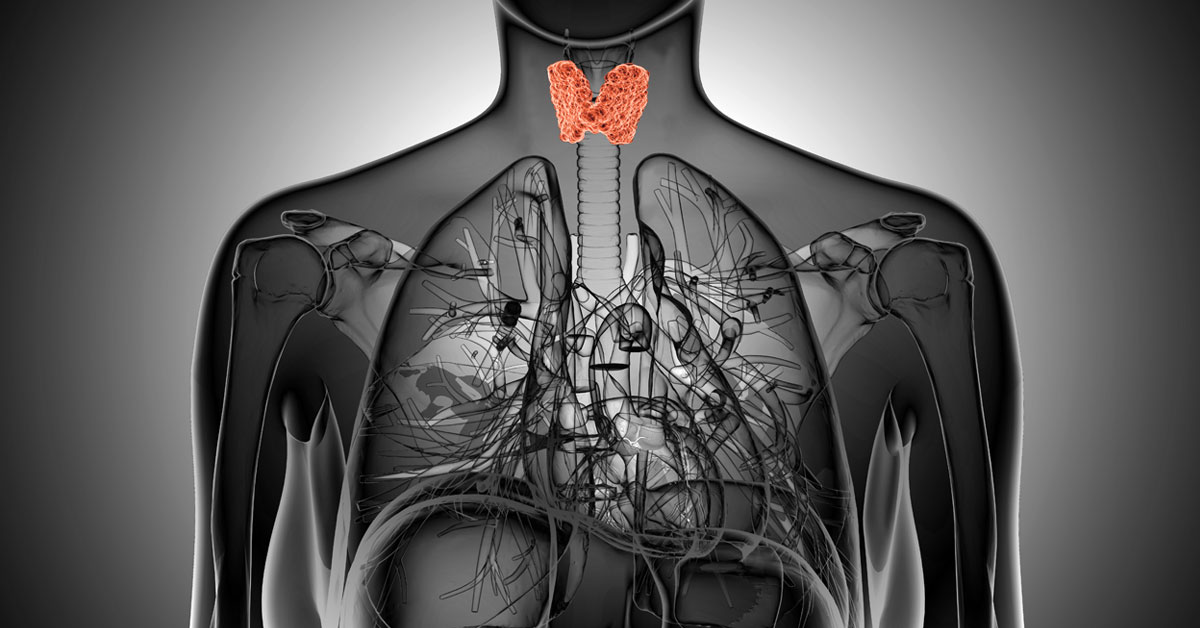Articles

The Impact of Nutrition on Hyperthyroidism
What is the Thyroid Gland?
The thyroid gland is a butterfly-shaped gland located in the front of the neck. It produces several hormones essential for maintaining balance in the body, such as:
- Thyroxin (T4): Regulates digestion, heart rate, muscle function, and bone health.
- Triiodothyronine (T3): Controls metabolism, muscle regulation, brain development, and bone health.
- Calcitonin: Regulates calcium levels in the body.
The pituitary gland, located at the base of the brain, is responsible for producing and releasing thyroid-stimulating hormone (TSH), which controls thyroid hormone production and release.
What is Hyperthyroidism?
Hyperthyroidism occurs when the thyroid gland overproduces hormones, leading to elevated thyroid hormone levels in the body. This condition can result in severe complications, such as heart issues, arrhythmias, and bone weakness or osteoporosis.
Symptoms of Hyperthyroidism
- Insomnia
- Anxiety and stress
- Depression
- Significant weight loss
- Increased appetite
- Diarrhea
- Hair loss
- Enlargement of the thyroid gland
- High blood pressure
- Increased heart rate
- Hand tremors and brittle nails
- Muscle cramps
Causes of Hyperthyroidism
Graves’ Disease:
- An autoimmune disorder where the immune system attacks the thyroid gland, causing excessive hormone production.
Thyroiditis:
- Inflammation of the thyroid gland, often due to autoimmune conditions or unknown causes, leading to hormone leakage into the bloodstream and hyperthyroidism symptoms.
Role of Nutrition in Managing Hyperthyroidism
While diet cannot cure hyperthyroidism, specific nutrients can help manage the condition and its symptoms.
1. Low-Iodine Diet
Iodine is essential for thyroid hormone production, and a low-iodine diet can help reduce excessive hormone production.
Foods to Include (Low-Iodine Options):
- Fresh, canned, or frozen fruits and vegetables
- Oats
- Potatoes
- Decaffeinated coffee or tea (without milk or creamers)
- Unsalted nuts
Foods to Avoid (High-Iodine Options):
- Seafood
- Eggs
- Milk and dairy products
2. Iron-Rich Foods
Iron supports oxygen transport throughout the body and is essential for thyroid function.
Iron-Rich Foods:
- Lentils
- Beans
- Meat
- Unsalted nuts
- Leafy greens
3. Selenium-Rich Foods
Selenium plays a critical role in thyroid hormone synthesis and tissue protection.
Selenium-Rich Foods:
- Whole grains like oats
- Beef, turkey, and chicken
- Brazil nuts
Foods to Avoid
- Refined Foods: White bread, pasta, and sugar.
- Red Meat: Consume in moderation.
- Trans Fats: Found in commercially baked goods like cookies, crackers, cakes, fried foods, and processed snacks.
General Dietary Tips
- Include antioxidant-rich foods like blueberries, cherries, tomatoes, and squash.
- Engage in regular physical activity for 30 minutes daily, five days a week, if possible.
Conclusion
Nutrition plays a crucial role in managing hyperthyroidism symptoms. By following a balanced, low-iodine diet and incorporating specific nutrients, individuals with hyperthyroidism can better control their condition and improve their quality of life.
References
- https://myhealth.alberta.ca/Health/Pages/conditions.aspx?hwid=ug1836&lang=en-ca#:~:text=The%20thyroid%20gland%20makes%20and,%2Dstimulating%20hormone%20(TSH).
- https://apm.amegroups.org/article/view/67466/html#:~:text=Selenium%20participates%20in%20the%20synthesis,the%20thyroid%20tissue%20(28).
- https://ods.od.nih.gov/factsheets/Selenium-HealthProfessional/#:~:text=Selenium%20and%20Healthful%20Diets,-The%20federal%20government’s&text=Includes%20a%20variety%20of%20protein,particularly%20high%20levels%20of%20selenium.
- https://www.alarabiya.net/medicine-and-health/2016/12/13/%D9%84%D9%81%D8%B1%D8%B7-%D9%86%D8%B4%D8%A7%D8%B7-%D8%A7%D9%84%D8%BA%D8%AF%D8%A9-%D8%A7%D9%84%D8%AF%D8%B1%D9%82%D9%8A%D8%A9-5-%D8%A3%D8%B7%D8%B9%D9%85%D8%A9-%D9%85%D8%B3%D9%85%D9%88%D8%AD%D8%A9-%D9%885-%D9%85%D9%85%D9%86%D9%88%D8%B9%D8%A9
- https://www.mountsinai.org/health-library/condition/hyperthyroidism
- https://jn.nutrition.org/article/S0022-3166(23)12195-X/abstract#:~:text=Grain%20products%20varied%20widely%20in,white%20bread%20and%20white%20sugar.
